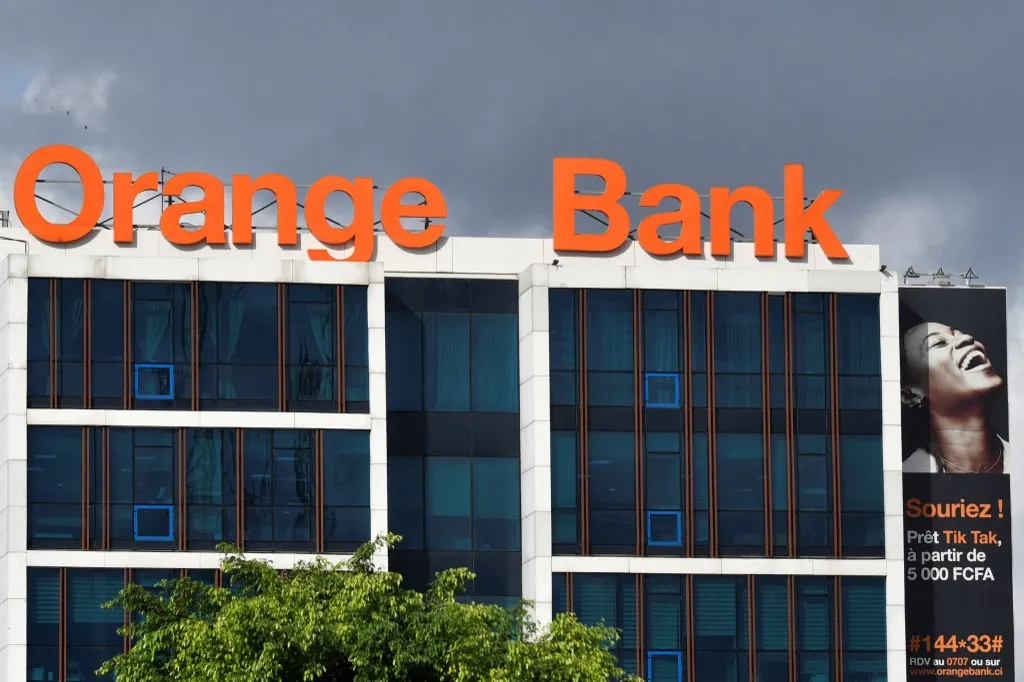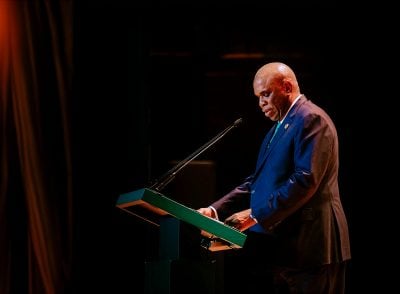
Although Safaricom’s M-Pesa was widely heralded as Africa’s first mobile money product after it was launched in 2007, French telecom giant, Orange, followed shortly after with the launch of Orange Money in 2008.
The service was first launched in Côte d’Ivoire but has since spread to the 18 markets Orange is active in – mainly Francophone West and Central African markets.
Jérôme Hénique, who took over as Executive Vice-President and CEO of Orange Middle East and Africa in April, says there are around 80m customers in Africa.
However, in recent years well-funded and fast-moving startups like Wave have drastically eaten into Orange’s market share, pushing the telco to look at new ways to maintain business.
One of those strategies was the 2020 launch of Orange Bank Africa; a stripped-back banking service allowing customers to save and borrow through their mobile phones.
“We have more than one million customers in Côte d’Ivoire, where we launched, with more than two million loans already provided,” Hénique says. “It’s a great success and we are expecting double-digit growth.”
The loan amounts are on average around €70 for small businesses like farmers who “will borrow a small amount for working capital, buy goods and then pay back the loan to take another one for the next month”.
However, smallholders are a particularly tricky sector to lend to in Africa and it may provide some difficulties given that Orange’s core business is not lending, like that of a bank. In fact, Hénique argues that Orange is better placed to calculate risk as it already has the data of customers’ spending habits through Orange Money.
“Thanks to mobile money we are very well informed on the habits, the trends and the patterns of the customers, so it helps us to build the algorithms to make sure we are targeting the right part of the population,” he says.
By 2025, Orange Bank Africa plans to launch in three more countries – Senegal, Burkina Faso and Mali – and it hopes to have secured up to 10m customers.
The new product is a shrewd response to a multifunctional world where telcos become mobile money operators, mobile money operators become banks and all players in the market seek to maximise revenue and attract and attain customers by rolling out a suite of services.
Indeed, if a customer has the additional option of not only sending money but also borrowing it and saving it through Orange Bank Africa, then Orange has a significant advantage over Wave, which at the moment offers only one service.
Blessing in disguise
When asked about the effect that Wave, which is backed by US venture capital, has had on Orange’s growth mentality, Hénique says that it was a blessing in disguise.
“It helped all the operators, not only Orange but all the operators, to make sure we are up to the digital customer journey interfaces – we had to catch up,” he says.
The problem, he says, is that Wave’s initial low or zero fee offering was very successful for onboarding customers, but it does not take into account the capital made from profit that is needed to sustain a network of agent distributors across a market.
Entering new markets
Although Orange is present in Botswana, Sierra Leone and Liberia, it does not have a presence in some of the key Anglophone markets like Nigeria, Kenya and South Africa.
Hénique says that Orange is always interested in entering new markets but “there has to be a clear opportunity and we have to find the right way to enter these countries”.
The CEO says that one “key opportunity” on Orange’s radar is Ethiopia. “We consider it a very attractive market because it is a large market and there is still a lot to do in terms of bringing broadband and mobile money in this country. We are looking at it.”
For countries like Nigeria, which already have a host of players, the telco would likely need to see where it can add clear value to take on such a big market.
Another area of expansion is the rollout of 5G, which was first launched in Botswana in November last year. The CEO says that the company is currently in discussion with several countries to bring the service to Orange markets.
“The countries have understood that if they want the latest technology as soon as possible then they have to implore the operators to invest because we have to invest a lot in the infrastructure. They have to reduce the price of the licences or make it for free. That’s what happened in Botswana and that is why we launched there first.”
Changing consumer habits
With an overview of several different products, Hénique has a unique view on changing spending habits across the continent. He says that data revenues were higher than voice revenues for the first time in Africa last year.
“This is a trend that we are seeing everywhere. Not only because the data is growing but because the voice is decreasing, substituted by voice notes and texts. That is the normal trend as we experienced in Europe and other countries. Depending on the country it can go faster or slower.”
As a result, Orange is investing heavily in 4G networks and fibre connectivity, to roll out the product which will see the greatest growth in demand. Indeed, Henique says that the firm is investing around €1bn a year in infrastructure in Africa and the Middle East. It has also invested in energy, in its ambition to become a multi-service operator.
“For energy we have a platform called Orange Smart Energy which enables people to access renewable energy and pay for it with Orange Money. The same can apply to other verticals for day-to-day services.” The ultimate goal is to create a ‘super app’ which will provide users with a whole range of products and services. “When you offer connectivity and payments, then you can build a lot of verticals on those two enablers,” Hénique says.
Want to continue reading? Subscribe today.
You've read all your free articles for this month! Subscribe now to enjoy full access to our content.
Digital Monthly
£8.00 / month
Receive full unlimited access to our articles, opinions, podcasts and more.
Digital Yearly
£70.00 / year
Our best value offer - save £26 and gain access to all of our digital content for an entire year!

 Sign in with Google
Sign in with Google 



